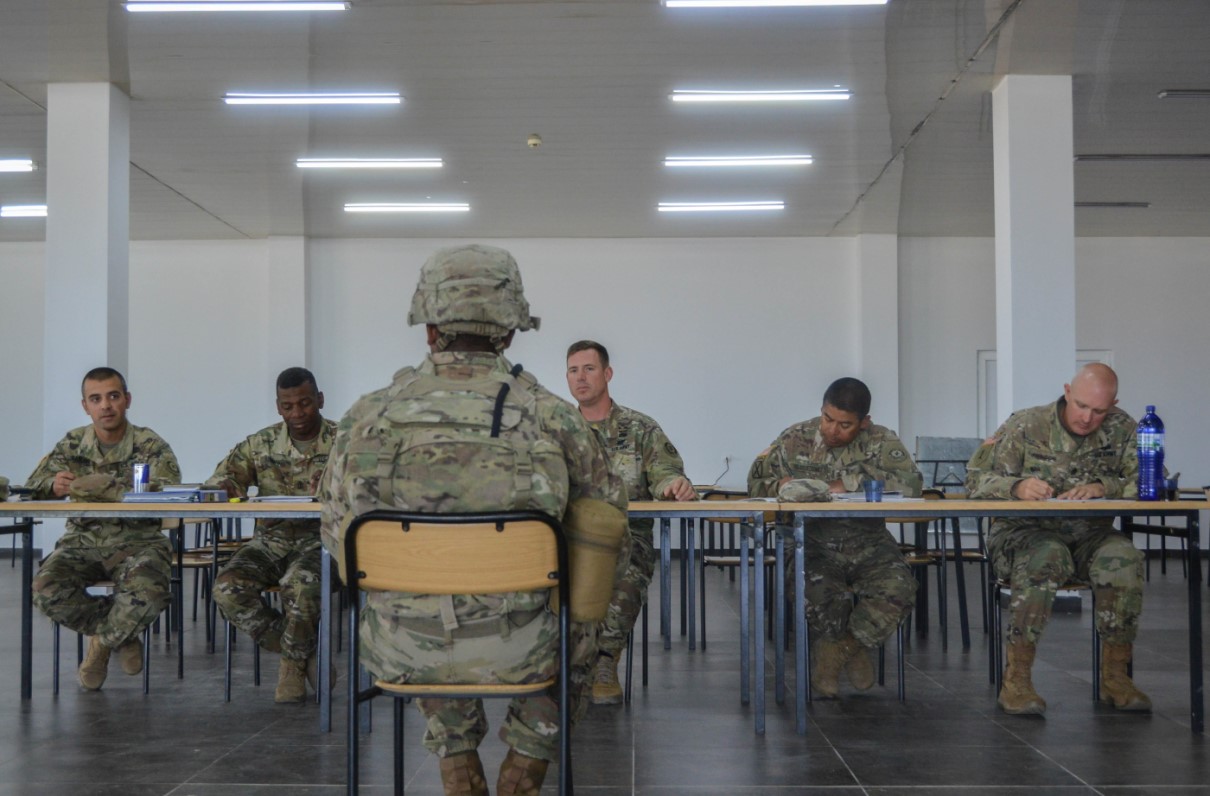Editor’s note: This article by Richard Sisk originally appeared on Military.com, a leading source of news for the military and veteran community.
The Defense Department has plans to remove all personal identifying characteristics, such as gender and name, from promotion packets to avoid potential bias by selection boards, Joint Chiefs Chairman Gen. Mark Milley said Sept. 24.
In July, Defense Secretary Mark Esper put out a directive barring the use of photos by selection boards. But on Thursday, he and Milley said the directive didn't go far enough in promoting equal opportunity and diversity in the ranks.
"We are the world's biggest meritocracy," Milley said at a town hall meeting. But bias, whether conscious or unconscious, needs to be eliminated, he added.
Milley said that knowledge, skills and character should be the main factors in deciding promotions, not personal characteristics. The goal is to remove "all indicators of personal characteristics," such as gender, name and racial information, from promotion packets to ensure that selection boards make decisions based on merit, he explained.
[RELATED: More Career News From MOAA]
"To do that, we have to essentially sterilize the board files. All of the [service] secretaries think this is the way to go. I think this is the way to go," he said.
Milley, Esper and Air Force Chief Master Sgt. Ramon "CZ" Colon-Lopez, the top senior enlisted adviser to the Joint Chiefs chairman, took questions at the town hall meeting, during which they were challenged by service members on the military's efforts to promote diversity and inclusion, as well as its response to the COVID-19 pandemic.
"Certainly, we have areas to improve in," Colon-Lopez said. "But on balance, we recognize that knowledge, skills, attributes and the content of your character are what should advance you in the system, not any particular personal identity or characteristics."
Colon-Lopez gave a stark warning of the dangers ahead should the military fail to follow through on pledges to address racial issues and improve diversity.
He referred to the racial divide in the ranks during the Vietnam War that sometimes turned deadly, with more than 300 reported race incidents on bases, aboard ships and on the front lines in 1968.
[RELATED: SecDef Proposes Getting Rid of Military Promotion Photos to Eliminate Unconscious Bias]
In addition, "two carriers were brought to a halt" by race riots in 1972, Colon-Lopez said, referencing incidents aboard the aircraft carriers Kitty Hawk and Constellation.
The Defense Department "was in a really tough spot regarding racial issues" during Vietnam, he said. "We cannot regress back to that; we're better than that. So let's take care of one another."
The three did not address, and were not asked about, an executive order issued by President Donald Trump. The order bars the use of material suggesting the U.S. is "an irredeemably racist and sexist country" in diversity training programs.
Esper pointed to discussions on race and training programs to promote diversity, inclusion and equal opportunity at installations worldwide to underline the military's commitment. He added that the department is on track to set up a defense advisory board on diversity by early December.
The board's function would be similar to that of the long-standing Defense Advisory Committee on Women in the Services, he said.
In defending the military's response to the COVID-19 pandemic, Esper sought to ease the concerns of a sailor aboard the aircraft carrier Ford, who said that mask-wearing and difficulties maintaining social distancing are having an impact on morale.
[LATEST NEWS AND GUIDANCE: MOAA.org/Coronavirus]
The COVID-19 restrictions are taking a "huge toll on many sailors," the sailor said. "Their morale has plummeted but, most importantly, their mental health as well."
"[The Navy's priorities are] in the right place, and that's [to] take care of our people first. It is tedious, I understand it," Esper said of the need to comply with the restrictions, but added that the results in curbing infection rates have been encouraging. "[The Navy is] taking heed to what they see regarding morale, and I have confidence that the Navy leadership will do the right thing."
Support The MOAA Foundation
Donate to help address emerging needs among currently serving and former uniformed servicemembers, retirees, and their families.
